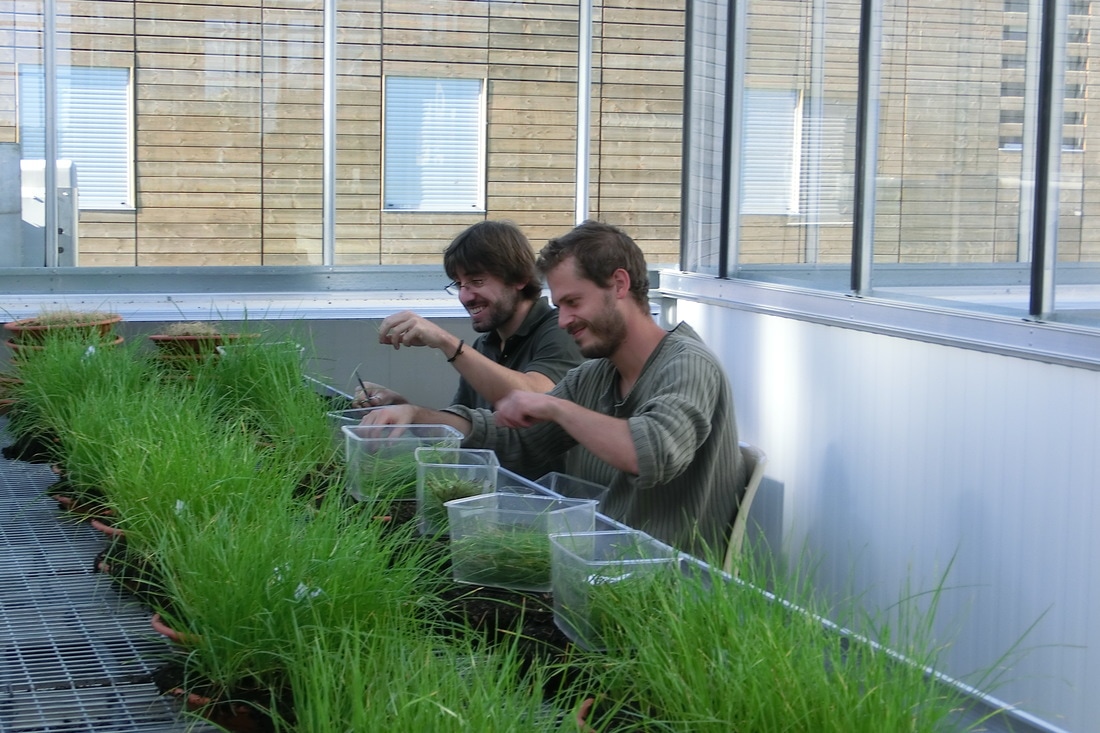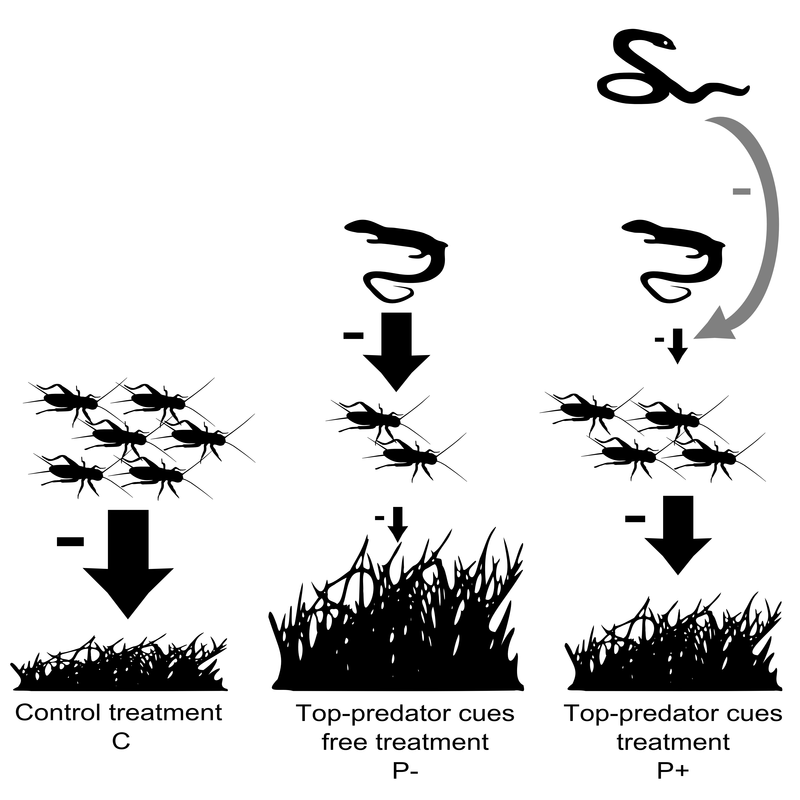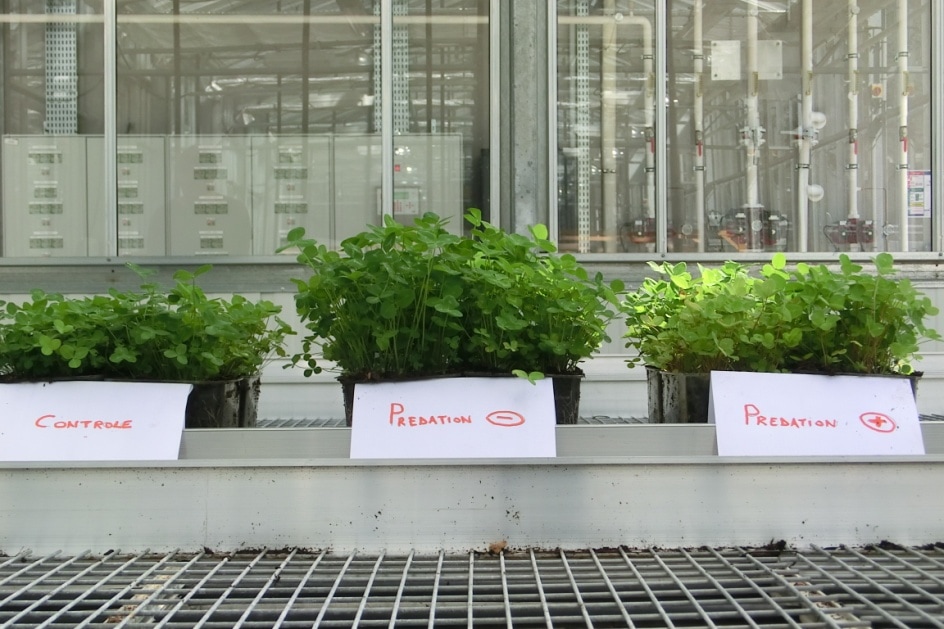Fear, the anticipation of a potentially imminent danger, is taking over most decisions in modern human societies, from neighborhood watch program to foreign policy decisions. However, fear is not limited to human species and is now believed to influence almost all processes of animal ecology. The fear of being killed allows animals to escape predation, but in return diverts them from mating and eating. Lowering these activities down may have strong impact on population, community and ecosystem functioning.
 "The grass may look greener on the other side, but believe me, it's just as hard to cut" (Little Richard)
"The grass may look greener on the other side, but believe me, it's just as hard to cut" (Little Richard) For instance, the fear of predators can strongly impact food chain dynamics through effects on herbivores morphology, physiology or behaviour. However these predators are also afraid by their own predators, named top-predators, and this fear of top-predators may propagate through the entire food chain, affecting to the lowest trophic levels (i.e. plants). In experimental mesocosms, we created a food chain including mesopredators (lizards), herbivores (crickets), and primary producers (plants) and we manipulated cues of top-predators (snakes) presence. After few weeks, we quantified primary production though plant growth.
Lizards have positive impacts on plants growth through the consumption of crickets, but this impact is clearly lowered in the presence of snake odour, probably because lizards consume fewer crickets when their own predators are around. This study can be added to the accumulating evidences that the fear of being eaten can be as important as the fact of being eaten for ecological processes.
Lizards have positive impacts on plants growth through the consumption of crickets, but this impact is clearly lowered in the presence of snake odour, probably because lizards consume fewer crickets when their own predators are around. This study can be added to the accumulating evidences that the fear of being eaten can be as important as the fact of being eaten for ecological processes.
Post originally posted on Oikos blog in May 2015 to accompagny the publication of
Bestion E, Cucherousset J, Teyssier A, Cote J. 2015. Non-consumptive effects of a top-predator decrease the strength of the trophic cascade in a four-level terrestrial food web. Oikos. doi: 10.1111/oik.02196
Bestion E, Cucherousset J, Teyssier A, Cote J. 2015. Non-consumptive effects of a top-predator decrease the strength of the trophic cascade in a four-level terrestrial food web. Oikos. doi: 10.1111/oik.02196


 RSS Feed
RSS Feed
